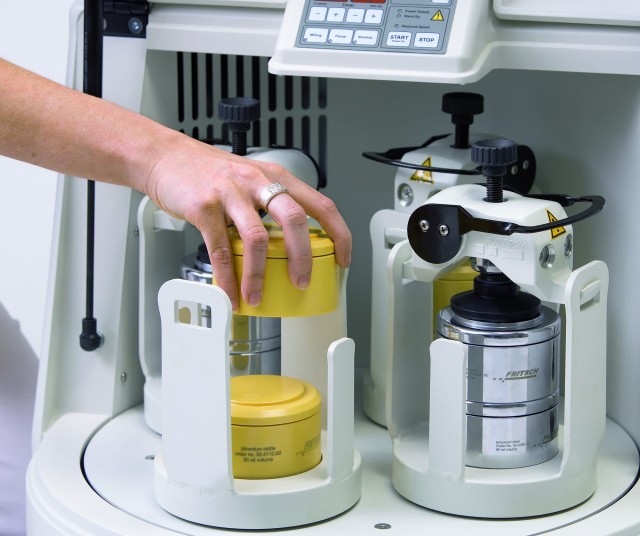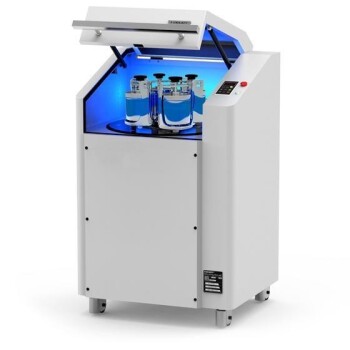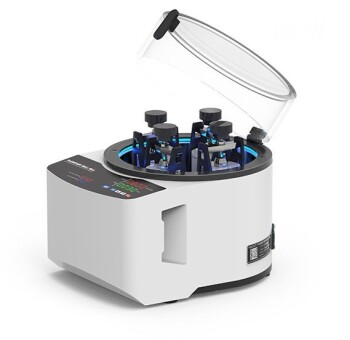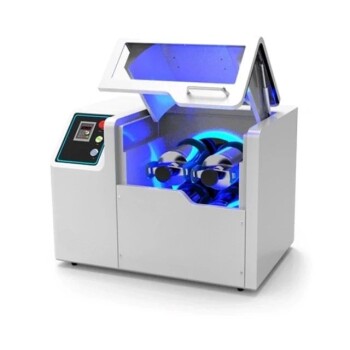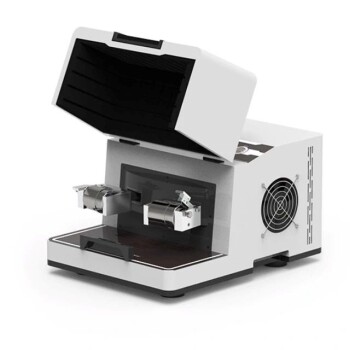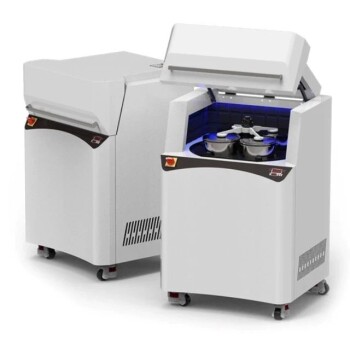Introduction to Planetary Ball Mills
Planetary ball mills have revolutionized the way laboratory samples are ground and mixed. These small-sized mills are specifically designed for grinding and mixing small batch samples, making them ideal for laboratory settings. Their unique arrangement of grinding jars and sun wheel allows for efficient and uniform grinding of sample materials. In this article, we will delve into the advantages of planetary ball mills, their function in creating ultrafine and nano-sized materials, and their technological advancements and safety features. We will also compare them to traditional milling machines and explore their high-speed milling capabilities. Join us as we explore the world of planetary ball mills and discover why they are the top choice for demanding laboratory applications.
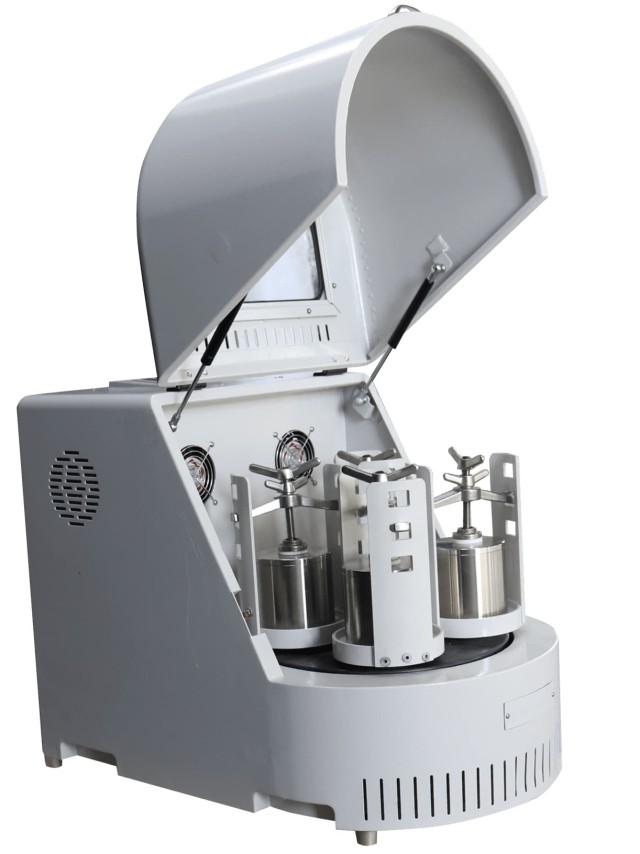
Advantages of Planetary Ball Mills
Planetary ball mills offer several advantages for various laboratory grinding applications. These advantages include:
Production of Fine Powder
Planetary ball mills facilitate the production of fine powder with a particle size of 10 microns or less. By utilizing the superimposed rotational movements of the grinding jars and the Coriolis forces, these mills can achieve a high and very effective degree of size reduction.
Milling of Toxic Materials in an Enclosed Form
The ability to mill toxic materials in an enclosed form is a key advantage of planetary ball mills. With safety features and stable, vibration-free operation, these mills can handle potentially dangerous solvents and materials, making them suitable for use in demanding applications, including mechanical alloying.
Wide Range of Applications
Planetary ball mills are smaller than traditional ball mills and mainly used in laboratories for grinding sample materials down to very small sizes. Their versatility and range of accessories make them suitable for a wide range of applications, including the production of nano powders and the milling of abrasive materials.
Suitability for Continuous Operation
These mills are designed for continuous operation, allowing for efficient and uninterrupted milling processes without the need for frequent interruptions or adjustments.
Usage in Milling Abrasive Materials
The unique interplay between the forces in planetary ball mills enables them to effectively mill abrasive materials, producing uniform fine powder and nano powders with crystal defects.
In comparison to traditional milling machines that rely on rotary cutting tools, planetary ball mills leverage forces, eliminating the need for a cutting tool and offering a safe and efficient milling solution.
Function of Planetary Ball Mills

Planetary ball mills are advanced milling equipment designed to reduce coarse feed materials to form fine products. These mills play a crucial role in achieving ultrafine and nano-sized materials for innovative product development. The high-speed rotation of the ball medium in the nano ball mill enables sample grinding and dispersion, leading to size reduction, eventually reaching the nanometer level. By controlling the speed and time of the ball medium, the ball mill can effectively impact and grind the sample, producing nano-samples of varying sizes.
The advantage of using nano ball mills lies in their efficient, fast, and uniform ball milling effect, resulting in the preparation of nano samples with uniform size and high purity. Additionally, these mills offer simple operation, a high degree of automation, and environmental protection, significantly improving experiment efficiency and safety. Moreover, planetary ball mills are smaller than common ball mills and are primarily used in laboratories for grinding sample materials to very small sizes. They find applications in diverse industry fields, including chemicals, ceramics, environmental protection, medicine, mines, and geology.
Notably, the noise produced by these ball mills makes them ideal for laboratory use. Furthermore, with the inclusion of vacuum mill jars, powder samples can be ground in a vacuum state, showcasing the versatility and adaptability of these ball mills. Their ability to prepare nanomaterials, magnetic materials, materials for the biomedical field, and electronic materials demonstrates the broad spectrum of applications for planetary ball mills.
In summary, planetary ball mills are high-performance all-rounders in routine laboratory work, pivotal in producing ultrafine and nano-sized materials for various industrial applications.
Technological Advancements and Safety Features
Planetary ball mills have revolutionized the process of achieving colloid particle sizes over extended grinding periods. The unique design of a planetary ball mill involves at least one grinding jar arranged eccentrically on a sun wheel, where the movement of the sun wheel is opposite to that of the grinding jars, resulting in superimposed rotational movements, known as Coriolis forces.
The high dynamic energies produced from the interplay between frictional and impact forces in planetary ball mills result in a highly effective degree of size reduction. This mechanical process generates nano powders of 2 to 20 nm in size and crystal defects, making it an inexpensive and easy method for achieving these specialized powder sizes. The speed of rotation of the balls influences the size of the nano powder produced.
However, this friction also generates heat and internal pressure, particularly in processes like colloidal grinding that require long grinding times. Therefore, the safety features of planetary ball mills are vital for handling these challenges. To prevent sample and/or solvent leakage during grinding, a tight seal between the jar and lid is necessary, along with the use of a safety clamping device to ensure the security of the sample and the user's safety.
Retsch’s planetary ball mills stand out as the top choice for demanding applications due to their powerful, sturdy drive concepts, stable operation, and outstanding safety features. These features are essential because the mill may need to be left unattended for long periods and used with potentially dangerous solvents, making safety a top priority when handling planetary ball mills.
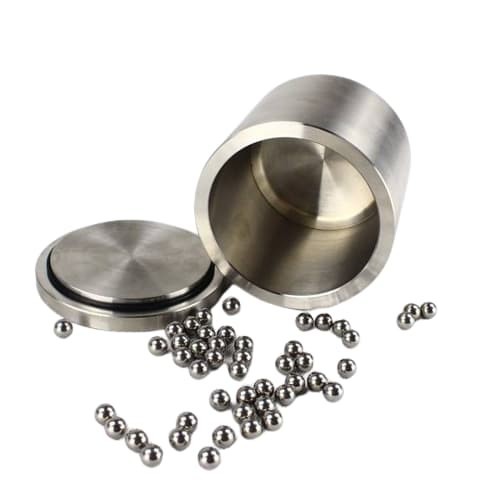
Comparison with Traditional Milling Machines
The high-energy ball mill is a unique grinding machine that leverages force rather than cutting tools, offering a contrast to traditional milling machines. This article explores the differences between ball mills and traditional milling machines, emphasizing how ball mills function and the advantages they offer in various applications.
The degree of milling in a ball mill can be influenced by factors including the residence time of material in the mill chamber, the size, density, and number of ball mill, the nature of the ball mill (hardness of grinding material), feed rate and level in the vessel, and the rotation speed of the cylinder. Additionally, there are different types of ball mills that exist, ranging from planetary ball mills, mixer mills, vibration mills, to horizontal rolling ball mills with varying operating principles and maximum capacity of the milling vessel, some reaching several 100L.
Tumbling ball mills, the most widely used variation, operate in both wet and dry systems, in batch and continuous operations, and on a small and large scale. The grinding elements in ball mills travel at different velocities, leading to varied collision forces, directions, and kinetic energies between the elements within the ball charge. This results in frictional wear, rubbing forces, and collision energy, all derived from the rotational motion of the balls and the movement of particles within the mill.
One notable advantage of ball mills is their ability to produce very fine powders, with particle sizes less than or equal to 10 microns. Moreover, they are suitable for milling toxic materials as they can be used in an enclosed form, making them versatile for a wide range of applications, including continuous operation and the milling of abrasive materials.
In summary, the forceful operation of ball mills, their ability to produce ultra-fine powders, and their versatility in handling various materials and applications make them a compelling alternative to traditional milling machines.
Related Products
- Laboratory Planetary Ball Mill Cabinet Planetary Ball Milling Machine
- Laboratory Planetary Ball Mill Rotating Ball Milling Machine
- High Energy Planetary Ball Mill Milling Machine for Laboratory
- Laboratory Horizontal Planetary Ball Mill Milling Machine
- Mini Planetary Ball Mill Machine for Laboratory Milling
Related Articles
- Choosing the Best Material for Ball Mill: Essential Factors and Recommendations
- Features of Different Laboratory Mills: An Overview
- Disc / Cup Vibratory Mill: A Comprehensive Guide to Grinding Equipment
- Disc / Cup Vibratory Mill: A Comprehensive Guide for Laboratory Experts
- What is a Laboratory Crusher Used For?
